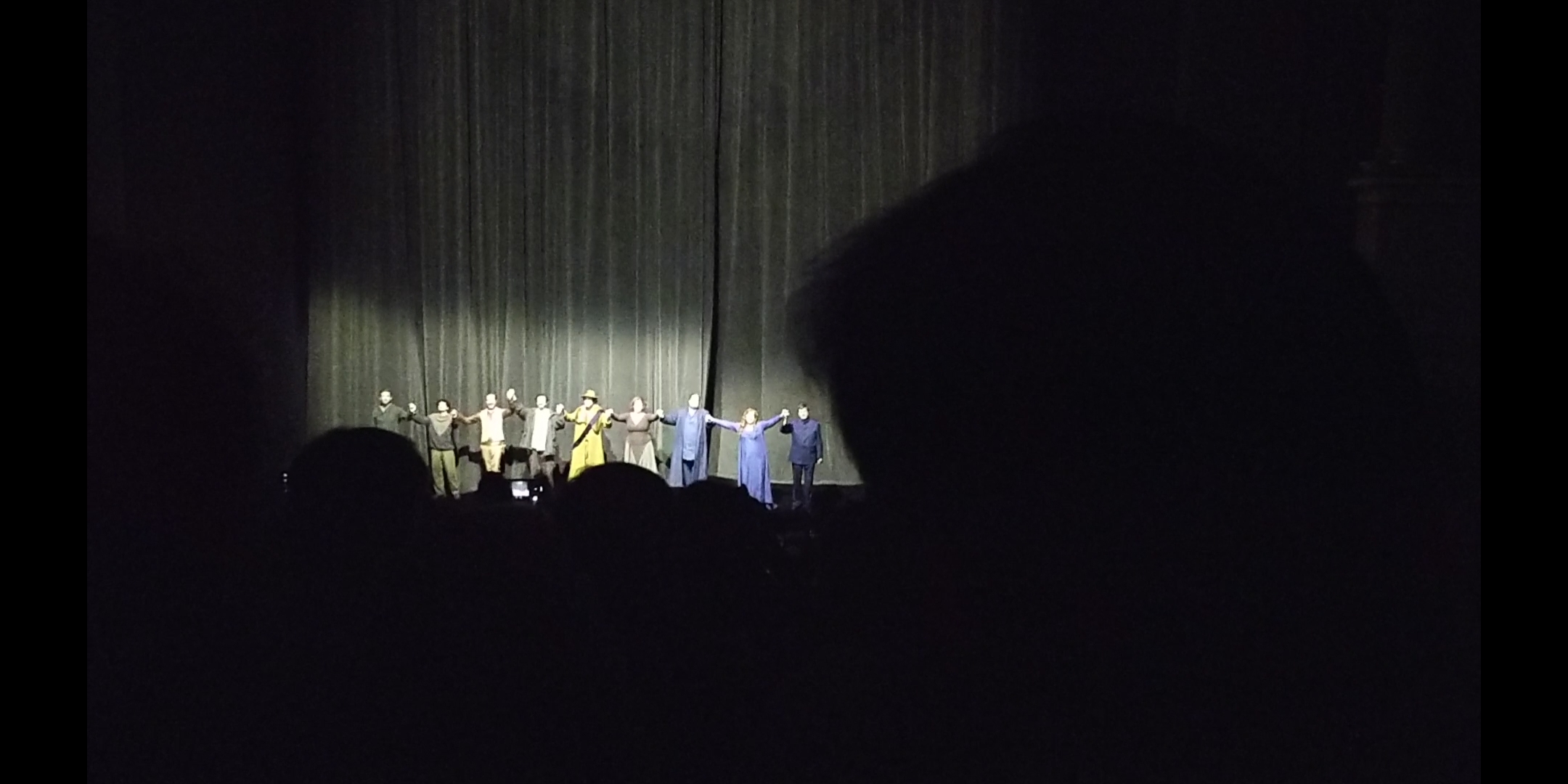Beware! Night soon gives way to day.
Brangäne, Tristan und Isolde, II ii
Took a stroll in Bayreuth’s old city in search of coffee and an amenable place to read. Came across this jolly little sidecar rig:
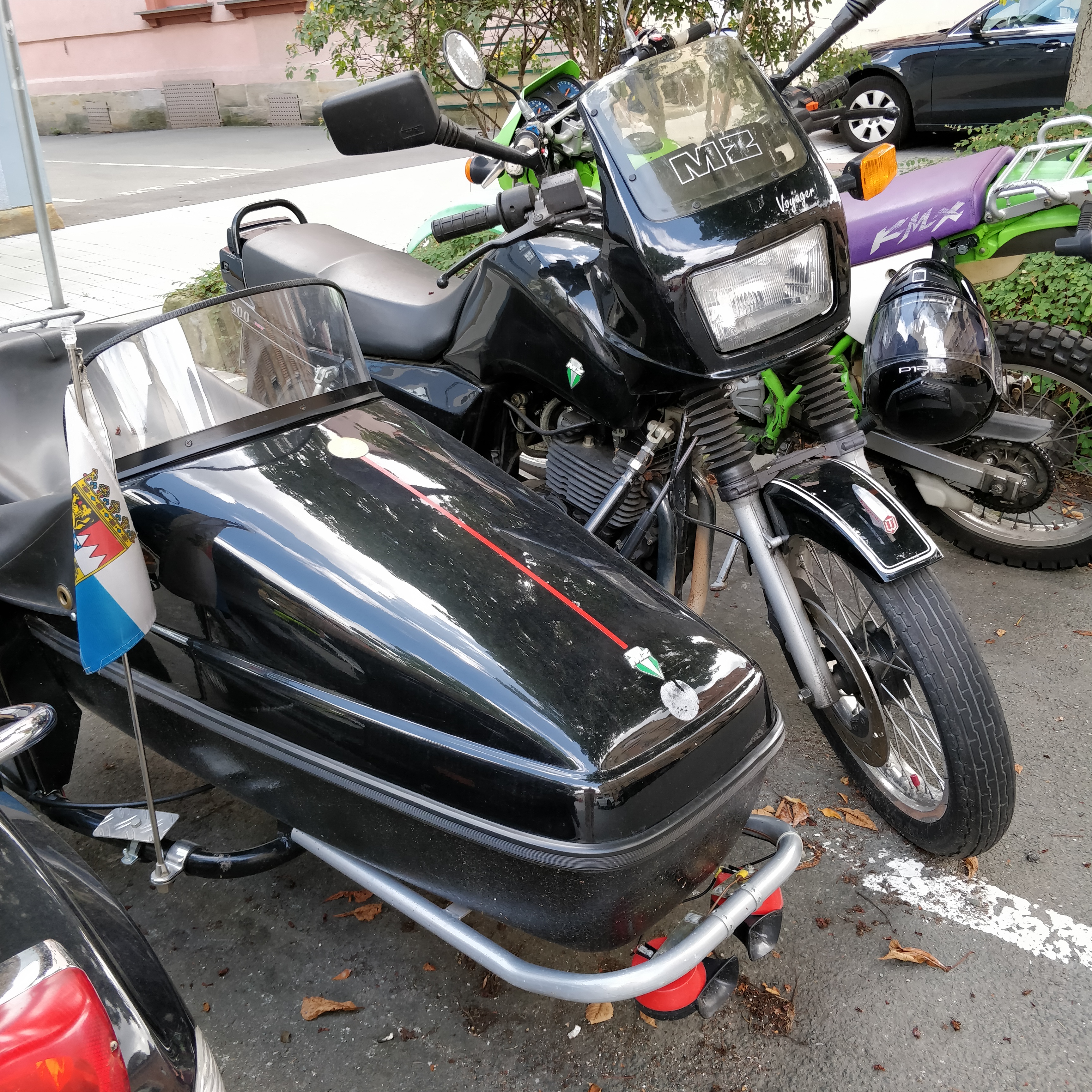
And passed the Steingräber Piano factory who supplied both Ferenc Liszt as well as the Bayreuther Festspiele, and cast the bell that I will hear rung in Parsifal tomorrow.
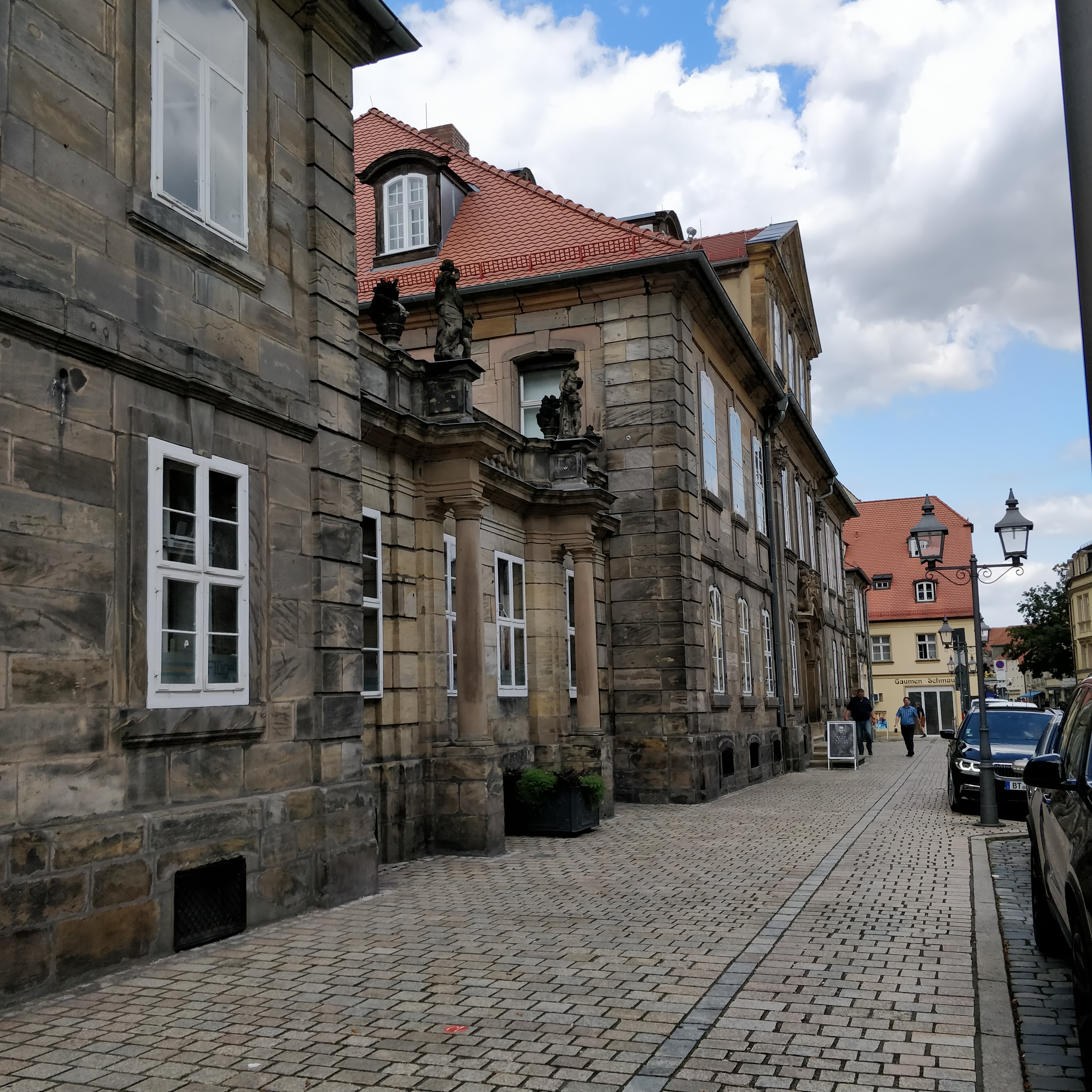
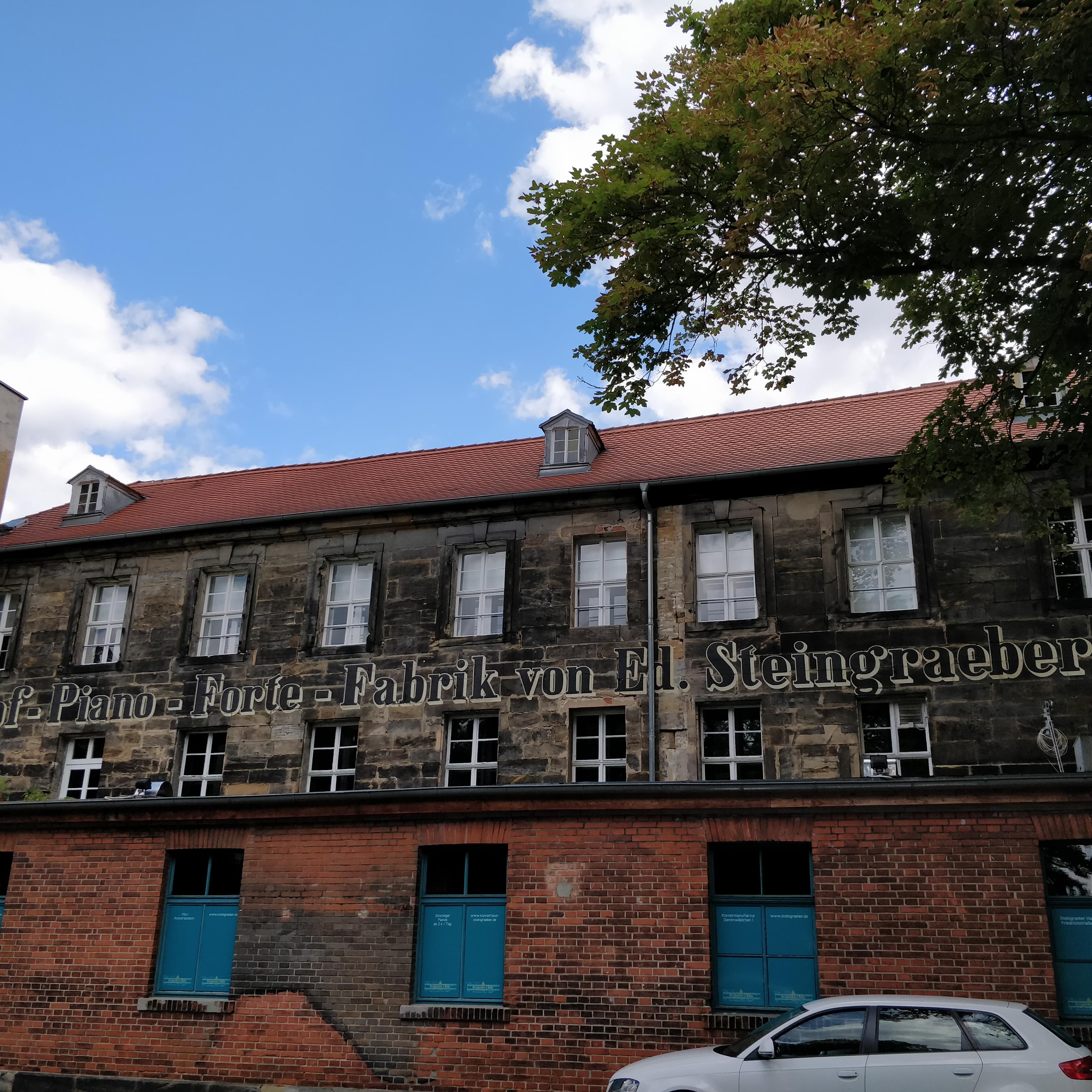
And found my (not very good) coffee at a shop on the market square.
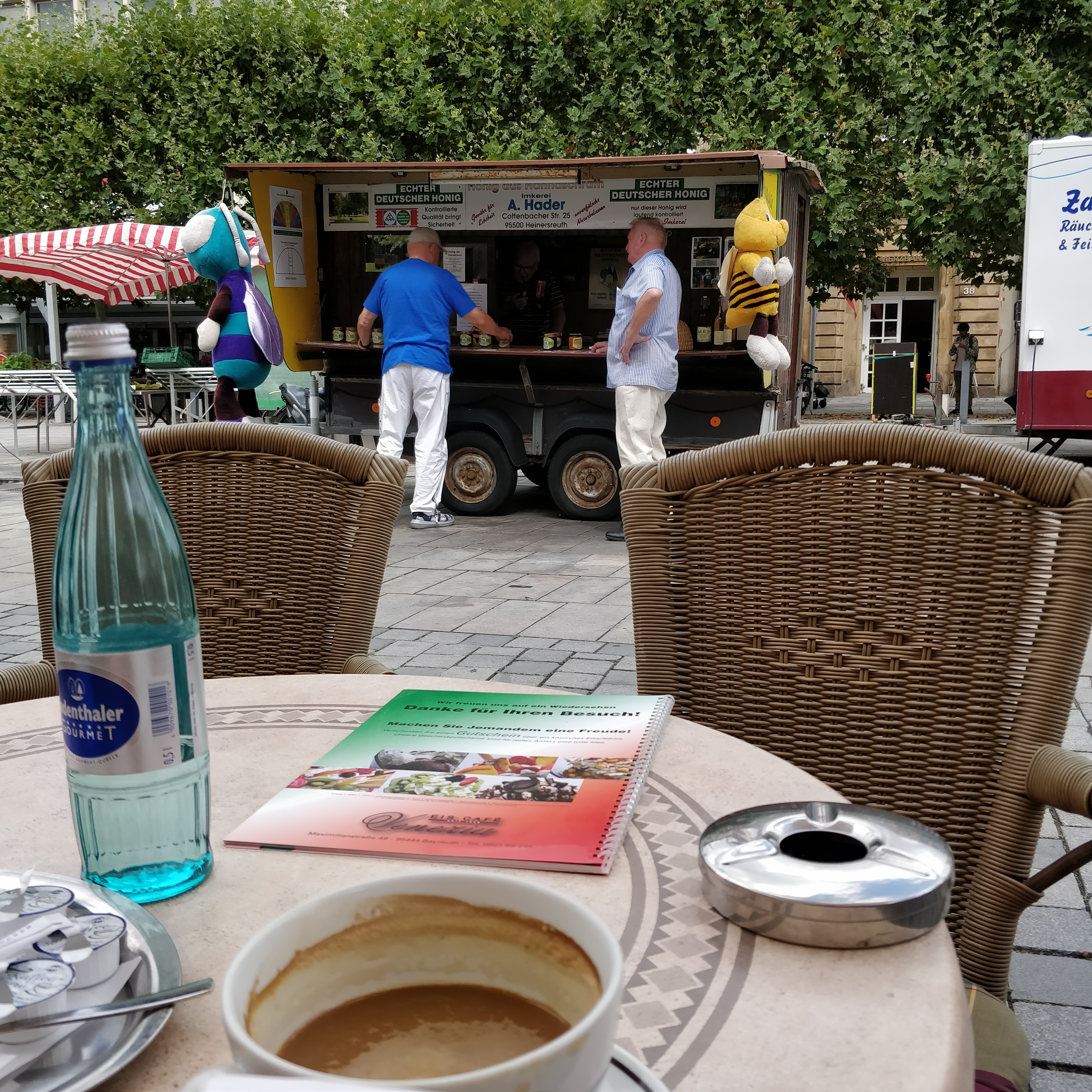
The gentle reader may note an ashtray on nigh every table I have photographed. I am not chain-smoking my way across the Holy Roman Empire, I assure you. But it’s ubiquitous outdoors, I’m not keen to stage photos, and there you have it.
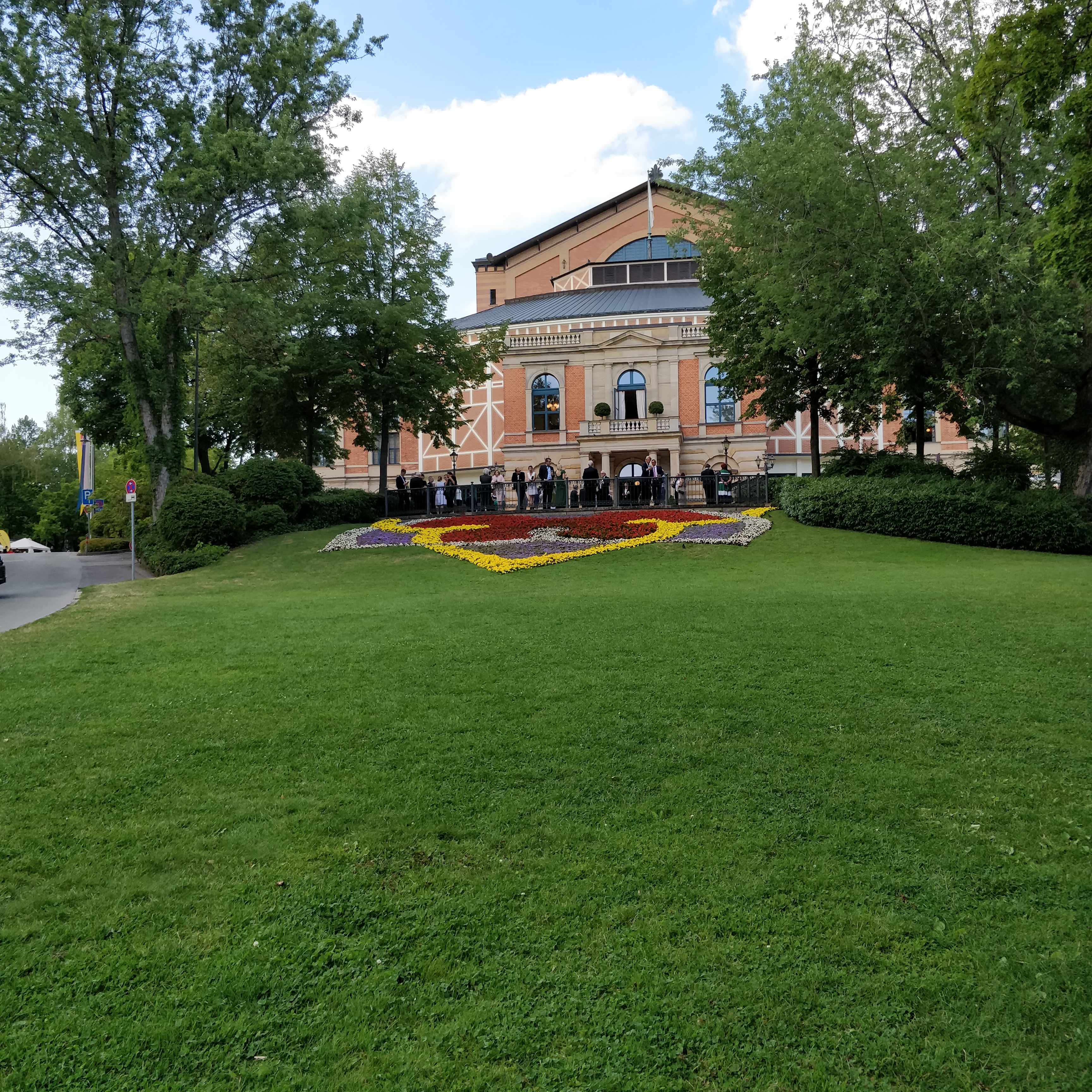
Today was Katharina Wagner’s production of Tristan und Isolde. It was here I most felt the specialness of being in the House that Wagner Built©. Meistersinger is downright conventional. Parsifal is intellectual. But Tristan is a great, fated, erotic expression of longing that resolves only in death. What little action there is, is… superfluous, omitted, or, when sung about, only truly understood through the music. There is no other opera like it. Twice before have I heard the English horn curl up the motif of desire – at the Met, a house not-so-affectionately known as the Barn. (3,800 seats, the world’s largest house; to Bayreuth’s 1,925). The impression is of a virtuoso offering a solo to the audience.
Bayreuth was designed, with lowered and covered orchestra, to allow voice and music to mix, before going over the gulf of the double proscenium. The solo fills the room, no bouncing around boxes and overhangs (there are none), but expands like it’s … inevitable. More than once tonight I thought I heard the most gorgeous sounds ever produced by mankind. To conductor Thielemann, chapeau.
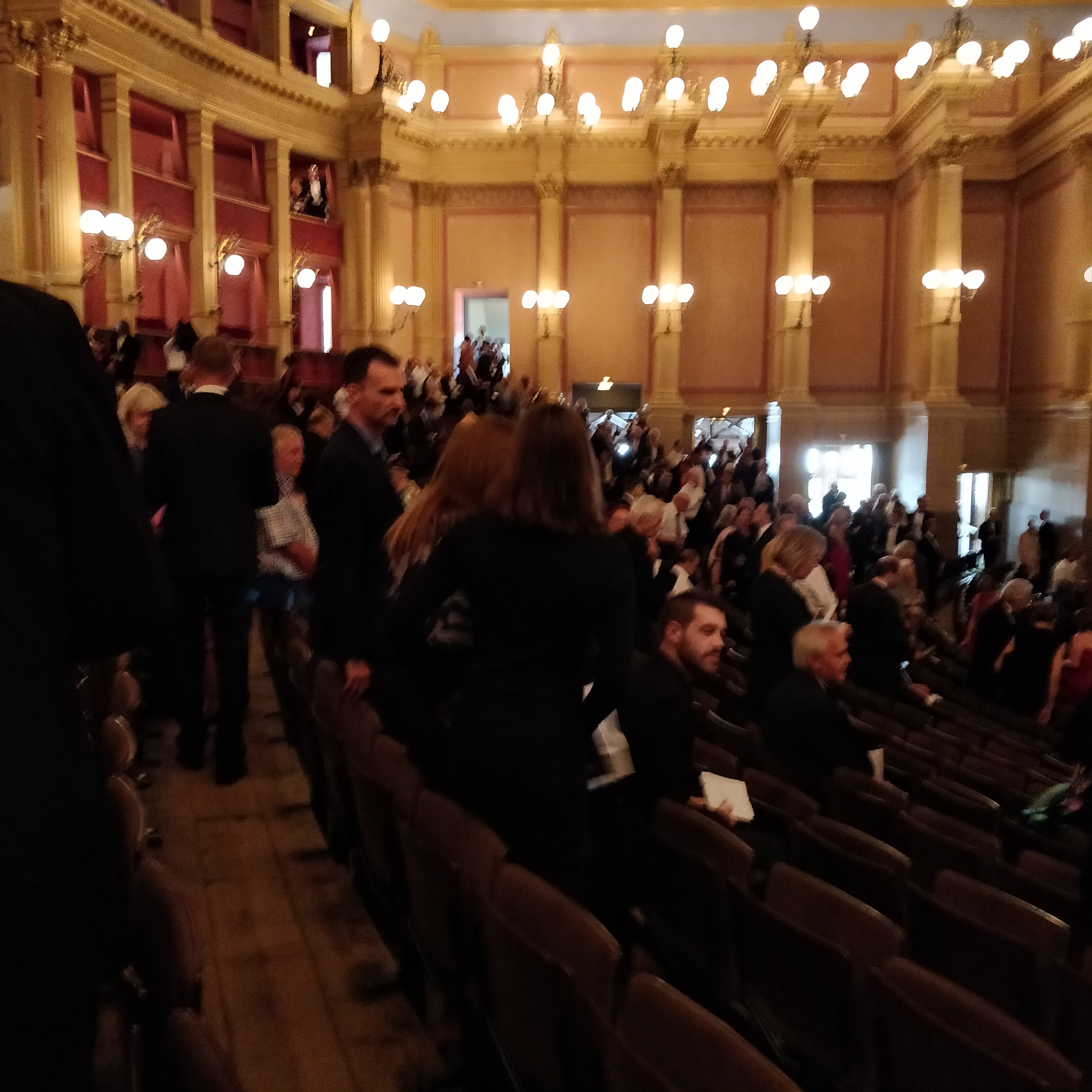
First intermission I walked the grounds a bit, and spent some time at the exhibit on anti-Semitism and Wagner, a forthright, brutal, and proper assessment of W, his family, and advocates.
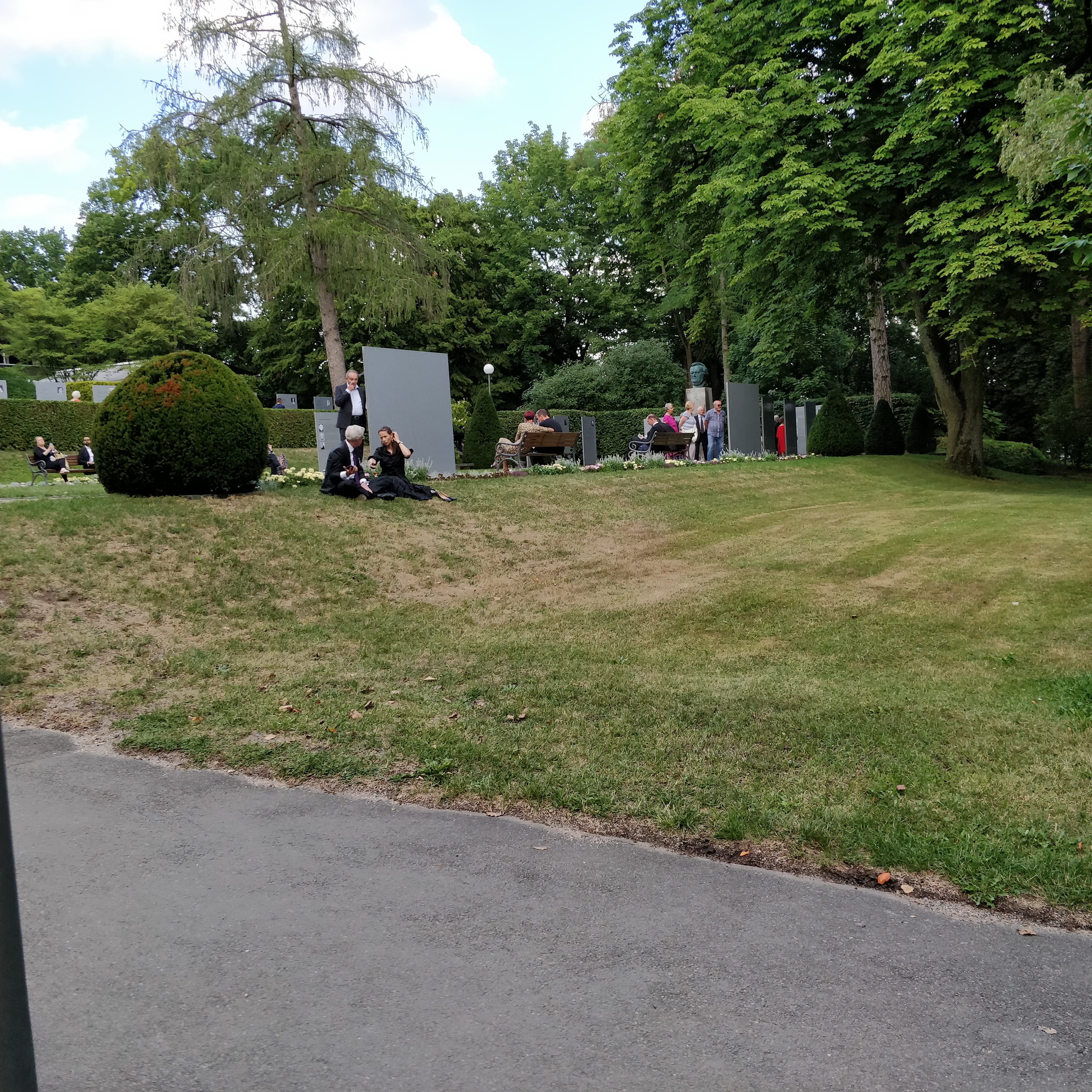
There is a swift dismissal of the argument “Oh, Wagner was part of his times, no worse, it was really Winifred who was the Nazi, he was misappropriated…” The exhibit details not only W’s reprehensible writings, but also Cosima, Winifred, and Eva’s husband Houston Stewart Chamberlain (some of Hitler’s favorite reading), the not-even-thinly-veiled Jewish villains in the operas (Alberich, Beckmesser, Mime). A slew of other memorials describe the careers of Jewish singers and instrumentalists who were employed at Bayreuth, then sidelined, fired, sent to concentration camps, and murdered. It’s sobering, and I give credit to any cultural institution that can attempt such an self-assessment.
I’ll try to dash off a bit more about the performance tomorrow. For now: Stephen Gould, previously unknown to me, was a brilliant, ringing, measured-but-earnest Tristan. Petra Lang’s Isolde didn’t quite have the stamina to make it through, and I felt some pitch issues. Beautiful tone when she did tho. Greer Grimsley, Kurwenal, should be encouraged to find other employment. Not only does his name sound like a second-rate Dickens character, but he woofs and pushes his way through what little singing he has to do (hint: one dynamic and it ain’t ppp), and when he isn’t singing he throws himself about like an unruly toddler — saw it in Glimmerglass two years ago (a performance I will title “Sweeney Todd Goes on a ‘Roid Rage”) and he can’t give it up. He has no inner stillness (why should he, he has no talent to lean on) and thinks he should throw himself against the walls to show his “empathy” during T&I’s love duet.
Production was booed at curtain call. Probably because it committed some “sins” the Wagner nuts couldn’t handle, but I am not so doctrinaire. Love philtre applied to hands? I dig it. Melot stabs a bound and blindfolded Tristan, instead of in a fight? No matter. Isolde “dies” but is then carried off by Marke? Well, I have to ponder that one.
Oh, and the costumes were rubbish.
